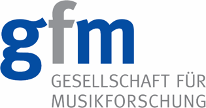The German Musicological Society supports the preservation of Ukrainian cultural assets
Monday, January 22, 2024

Since the devastating Russian attacks on Ukrainian cultural assets such as historic churches, theaters, cultural centers, museums, libraries and archives, have been going on for almost two years and no end is in sight, it is urgent to save these from total destruction and provide help if they have suffered damages. With that in mind, RISM would like to draw attention to the following announcement of the Gesellschaft für Musikforschung:
“The German Musicological Society (GfM) wants to support Ukraine in protecting and preserving its cultural heritage. The GfM aims to help Ukrainian music archives, music libraries and similar institutions in an unbureaucratic way in 2024. The GfM will offer technical support such as book scanners, dehumidifiers or power generators, as well as means for employing staff for digitizing the archival material (manuscripts, rare prints, etc.).
For more information contact GfM.”
Link to website
Three examples from Kyiv and Lviv should demonstrate how Ukrainian cultural assets – and the country’s musical heritage in particular – are not only of national, but also of international importance.
The music collection of the choir of the Theological Academy in Kyiv features several compositions by Dmytro Stepanovych Bortnyans’ky, a composer of Ukrainian-Lemkian origins whose sacred choral pieces are also highly admired in the West. The RISM database lists 233 of Bortnyansʹky’s compositions from numerous libraries around the world. A few of these have also acquired international popularity, like “I Pray to the Power of Love” or “The Angel Greeted the Gracious One.” Our colleague Ljudmyla Rudenko, who is active at the music department of the Ukrainian National Library in Kyiv (UA-Knbuv), has done much research and also published several articles on the collection of the Theological Academy.
In Lviv, the Stefanyk Library (UA-LVs) is of special importance thanks to its sources from the Ossoliński collection, large parts of which were moved to Wroclaw after the Second World War due to the expulsion of Lviv’s Polish residents (these sources are now kept in The Ossolinski National Institute: PL-WRzno). Although only partially, sources from both libraries have already been cataloged for RISM. While the collaboration with the Stefanyk Library had to be suspended because of the war, half a year ago our Polish colleagues began intensively cataloging the sources located in Wroclaw.
Another special treasure of Lviv is a lute tablature of Polish provenance, which is kept in the library of the Ivan Franko National University (UA-LVu) and was cataloged for RISM a few years ago by Sofyja Holub. Assembled in the period 1555-1592, the manuscript includes several unique compositions for six- and seven-string lutes. For more details, see our earlier report.
Many other musical collections in Ukraine still await cataloging. The music city Odessa in particular will certainly be yet another place of great interest.
We wish the German Musicological Society all the best with their Ukrainian project and sincerely hope that the war against Ukraine ends quickly so that we can all return to our work and continue passing on the musical heritage of our countries in peaceful cooperation.
Share Tweet EmailCatégorie: A la une

